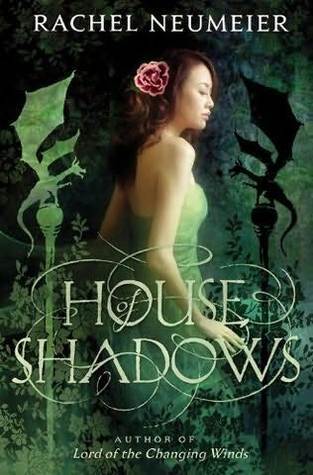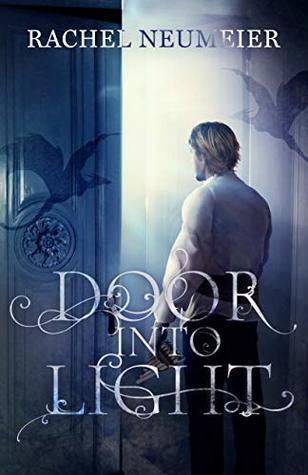The magic of creativity
From Maggie Stiefvater, over at tor.com: Five Books About Artists and the Magic of Creativity
As a fantasy reader, I cut my teeth on stories of fairies stealing away ordinary musicians and returning them as troubled geniuses, weavers knotting the future into mystical tapestries, men climbing mountains and returning as poets with fraught and mystical tongues. …
Ooh, ooh, I have one! (Or several). But first let’s see what Maggie Stiefvater has picked:
Fire and Hemlock by DWJ.
Okay, well, I know that quite a few people pick this one out as their favorite story by Jones. I have to admit, it isn’t one that I go back to very often. I admire its structure, but I like nearly every other book of hers better than this one. Unlike Steifvater, who says, “High myth and dreary reality blend seamlessly on the ordinary streets of ‘80s Britain in this novel; music and magic are inseparable in it. Jones … has written many novels, but this is the one I return to the most. With its dreamy, tongue-in-cheek style, it feels more like a memory than a novel.”
Yes, well, I’ve read it a couple of times, but my favorites are Dogsbody and some of the Chrestomanci stories. And Derkholm. For the dreamy tone, I actually prefer The Spellcoats to Fire and Hemlock.
Anyway, after DWJ, Stiefvater picks out a couple of books I’ve heard of but haven’t read. Then this one:
Taran Wanderer by Lloyd Alexander
It has been so long since I read this series that I have honestly forgotten a lot about it. One of the things I’ve forgotten, apparently, is anything about music or making. Let me see … Stiefvater says: “When I first read this one as a child, I found it the most dull—why did I have to read about Taran apprenticing with various craftsmen and artists while sulking that he was probably unworthy for a princess? When I reread it as a teen, I loved it the best of all of them. Taran takes away a lesson from every artist and artisan and warrior he meets, and the hero he is in book five is because of the student he was in book four.”
Oh, yes, that brings it back. I actually liked this one from the beginning. I have always liked stories about learning to do stuff. When I hit a training montage kind of thing — a “time has passed, he learned all the stuff” transition in a novel — I feel a bit cheated. Or sometimes more than a bit. I like the learning part. I won’t say it can’t be drawn out over-long, but I will say that for my taste that seldom happens, even when the training part of the book takes up most of the story, as in CJC’s The Paladin. Or the entire story in Sherwood Smith’s A Stranger to Command.
I didn’t mean to pick out just stories where someone is learning the arts of war. That was just a coincidence. I loved the Harper Hall stories best when first read all the Pern books, and in large part that was probably because of Menolly learning to be a harper.
Okay, and the last of the ones Stiefvater picks — click through to see all five — is Station Eleven by Emily St. John Mandel.
I liked that one a lot. Here we’re talking about actors rather than musicians. Stiefvater says, “The end of the world has come and gone, illness ravaging the population, and what is left in its wake? In St. John Mandel’s vision of the end of the world: artists. Actors, to be precise. We have ever so many apocalypse stories that show us the ugly side of humanity, but Station Eleven stands out for highlighting the opposite. Yes, there are survivalists with shotguns and ugly truths in this version of the end of the world, but there’s also art, creativity, synthesis, the making of a new culture. …”
Of course we do see a lot of the end of the world too, as this story moves back and forth through time and shows the apocalypse as well as the post-apocalypse.
Okay! As always with a five-part list, I feel that a lot of good choices for this theme were left on the table. I don’t think it will be at all difficult to add five more, thus creating the proper ten-part list.
Given that last choice, I now have actors on the brain. I can immediately think of three SFF novels where actors are very important. None of them really meld magic and artistry, but neither does Station Eleven, so that’s fine.
6) The Dagger and the Coin series by Daniel Abraham, starting with The Dragon’s Path.
Several things about this novel put me off the series, though from time to time I think of going on with it. This latter impulse is due mainly to Master Kit, the leader of a troop of actors. The actors are a great component of the story and Master Kit is by far my favorite character in the story so far.
7) The Republic of Thieves by Scott Lynch.
The link goes to a post of mine about the book, so click through if you wish, but rest assured, acting and actors are at the heart of the story. In a couple different ways, actually, considering the overall plot.
8) Not the same as the apprenticeship volume of Taran Wanderer, but I instantly thought of Castle Behind Thorns by Merrie Haskell. Fabulous and unusual story, where the protagonist is by himself, fixing up a ruined castle, for quite a long time.
9) Melding music and magic? Come on! Obviously the very best example ever is Song for the Basilisk! Remember that dreamlike journey into Fairie and out again? Not to mention the opera that’s being planned, and trying to teach Damiet to sing on key, and, and, and … no comparison for pouring music and magic together into fantasy. Except maybe for The Bards of Bone Plain, and honestly I just never liked that one as well as Song.
10) Music … magic … let me see … I know I have another one on the tip of my tongue … oh, right:


Bardic magic! Dragon harps! Horns that sound when a stranger steps through your door! And so on.
Who’s got another choice for melding artistry into fantasy? Drop it in the comments.
Please Feel Free to Share:











